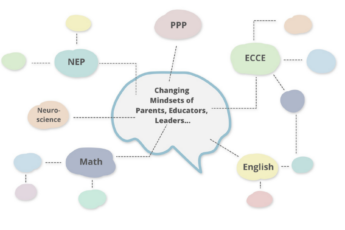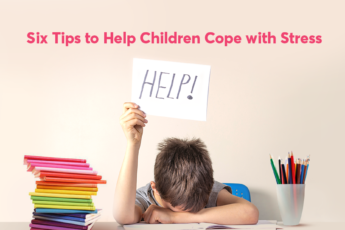Strategies for Parents to Foster Emotional Literacy among Children
It’s no surprise that kids may find it tough to express their emotions into words. When they’re feeling something they can’t quite put into words, they might act out in frustration. As parents, it’s essential for us to help our little ones learn about emotional literacy. This valuable skill boosts their overall wellbeing and paves the way for the future. Emotionally literate kids tend to have better self-control, improved physical and mental health, and they even perform better in school.
NEP 2020 highlights the importance of Social and Emotional Learning for children’s holistic development. It advocates for an education system that fosters logical, compassionate, and empathetic individuals. Accordingly, Delhi University introduced emotional intelligence courses in 2022-23. These courses empower students to create positive relationships, enhance personal competence, and develop self-awareness, self-management, social awareness, and relationship management skills.
Here are some strategies that parents can implement to encourage emotional literacy in your children:
😊Encourage Open Communication
Creating an environment where your kid feels comfortable discussing their emotions is the first step in fostering emotional literacy. Encourage your younger one to share their feelings, thoughts, and experiences with you. Make it a point to listen actively and empathize with their emotions. This open communication will help your child feel supported and understood, making it easier for them to express their feelings in the future.
😊Be a Role Model
As a parent, you are your child’s first and most important role model. Demonstrating emotional literacy in your daily life will teach them how to recognize and express their emotions effectively. Share your feelings with your little one, and explain how you handle different emotions. This will not only help them understand the importance of emotional literacy but also give them a concrete example to follow.
😊Teach Emotional Vocabulary
Helping your kid build an emotional vocabulary is crucial for their emotional quotient. Introduce them to words representing emotions like happiness, sadness, anger, frustration, and fear. Motivate them to use these terms to convey their emotions. For example, when your child is upset, encourage them to say, “I feel sad” or “I feel frustrated,” helping them identify and express their emotions effectively. You can also introduce more complex emotions, like jealousy, embarrassment, or disappointment, as your younger one grows older and gains a better understanding of emotions.
😊Validate their Emotions
Validating your kid’s emotions means acknowledging and accepting their feelings without judgment. This is an essential aspect of developing emotional intelligence. Respond with empathy and understanding when your child shares their emotions with you. Avoid minimizing or dismissing their feelings. Instead, help them feel heard and valued by saying things like, “I can see that you’re upset,” or “It’s okay to feel sad sometimes.”
😊Encourage Self-Awareness
Self-awareness is the ability to recognize and understand one’s own emotions. To help your kid develop self-awareness, encourage them to reflect on their feelings and emotions. Ask open-ended questions that prompt them to think about their emotions, such as “How did that make you feel?” or “What do you think caused you to feel that way?” This practice will help them become more in tune with their emotions and better equipped to manage them.
😊Use Books and Media to Teach about Emotions
Books, movies, and TV shows can be powerful tools for teaching emotional literacy. Choose age-appropriate stories that feature characters experiencing various emotions. Discuss the emotions portrayed in the story and how the characters handle them. This can help your child relate to the characters and learn from their experiences. Developing emotional intelligence through stories or films enables children to understand their emotions better, empathize with others, and effectively manage relationships.
😊Practice Empathy
Encourage your kid to consider how others might feel in different situations. Ask questions like, “How do you think your friend felt when that happened?” or “How would you feel if you were in their shoes?” This will help them develop empathy and become more emotionally literate.
😊Make Time for Play
Play is an essential part of a child’s emotional development. Through play, children can explore their emotions, practice social skills, and learn how to cope with different situations. Encourage them to participate in imaginative play, role-playing, and other activities that foster emotional expression. For instance, you could provide them with toys and props that inspire creative storytelling or set up scenarios that allow them to act out different emotions and experiences.
😊Seek Professional Help if Needed
If you’re concerned about your child’s emotional quotient or if they’re struggling to cope with their emotions, don’t hesitate to seek professional help. A therapist or counselor can provide guidance and support for both you and your child.
The Final Word
Recognizing the importance of emotional development in early childhood is essential for cultivating emotionally intelligent and resilient individuals who can navigate life’s challenges with ease. At Square Panda India, we firmly believe that emotional literacy is the cornerstone of personal growth and social well-being. Our comprehensive programs emphasize emotional intelligence alongside cognitive and academic development.




Leave a Comment